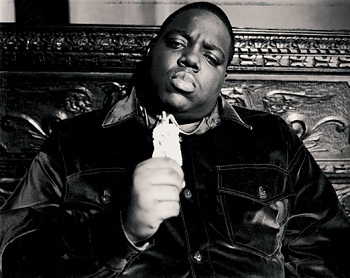 |
| Most of the time it involves this guy right here...more on that later. |
Licensing
So here's how it works. Companies that produce karaoke music secure the rights to recreate songs. These songs are recreated by bands and individuals hired by the companies but no lead vocals (because that's YOUR job). That said these companies shell out cold hard cash for these rights and they expect a return on their investment by being able to sell their CDs. That means they have to be careful about which songs they put out there. That brings me to...
Popularity
Have you seen Rihanna's new CD? It's got 14 tracks. Right now only one has made it to karaoke. If more of her songs break into the Top 40, there's a good chance they may become karaoke songs too. But just because you're a die hard Rihanna fan doesn't mean they're going to translate ever single song on her new album to karaoke. Michael Jackson, Madonna, The Rolling Stones, Elvis Presley, The Beatles...you can find almost their entire music catalog on karaoke because pretty much all their songs have been hits AND they have dedicated fan bases who will gladly snap up an entire karaoke CD that features only songs from their favorite artist. I know you love some indie band that nobody outside of Kentucky has heard of but unless they have a big fan who's willing to pour time and energy into creating a karaoke version of their music or they pay to produce their own karaoke songs you're just not going to see it in the mainstream. Speaking of popularity...
Region/Culture/Timing
You know who has the most mainstream karaoke calypso songs? That would be Harry Belafonte. Reggae? Bob Marley. Soca? LOL! That's a tough call. Kevin Lyttle maybe? Gangsta Rap? Ugh, don't come to my show looking for Eazy E, Kool Moe Dee or even Big Daddy Kane. I'm not saying these genres are bad. They're just incredibly underrepresented because they lack mainstream success. These genres are all victims of the regions they were actually popular in, the culture they were popular with and being popular at a time when karaoke wasn't.
Oh yeah, did promise I'd get to Biggie. The whole East Coast/West Coast feud thing with 2pac didn't help. It split the fan base in two and kept them local (namely LA and NYC). Karaoke wasn't a thing back in their day either. Good news though, Juicy is out there somewhere and I'm trying hard to get a copy of it.
The Bottom Line
The karaoke business' bottom line is making money. They realize they have to spend it to make it, but they can't afford to cater to everyone's whim. Their only real gauge for determining what they can and can't sell is to look at the music charts from now until when it all started and work from there. If an artist is good at generating hits, they'll get leeway and more of their stuff will be licensed.
What You Can Do
You're not totally helpless in all this. You actually have options. They're not as great as actually having the karaoke version of the song by your favorite artists but they're passable.
- Provide your own music and lyrics: Using Winamp and Vocal Remover, you can karaoke-ize a song. There results aren't great but you can bring the volume of the lead singer down enough that you can sing over them. If you were so inclined you can also purchase software that will let you make your own karaoke tracks.
- Start a campaign: If you can generate enough buzz with some of the major manufacturers there's a chance they'll release the tracks you want. Letter writing, Facebook fan pages, online petitions. People pay attention if you can get enough people behind it.
- Contact the artist: Yep, it's totally possible for the artist to arrange to have his/her/their own work translated to karaoke. Of course it's up to you, the fan, to convince them that their legwork will turn into profit for them.

No comments:
Post a Comment